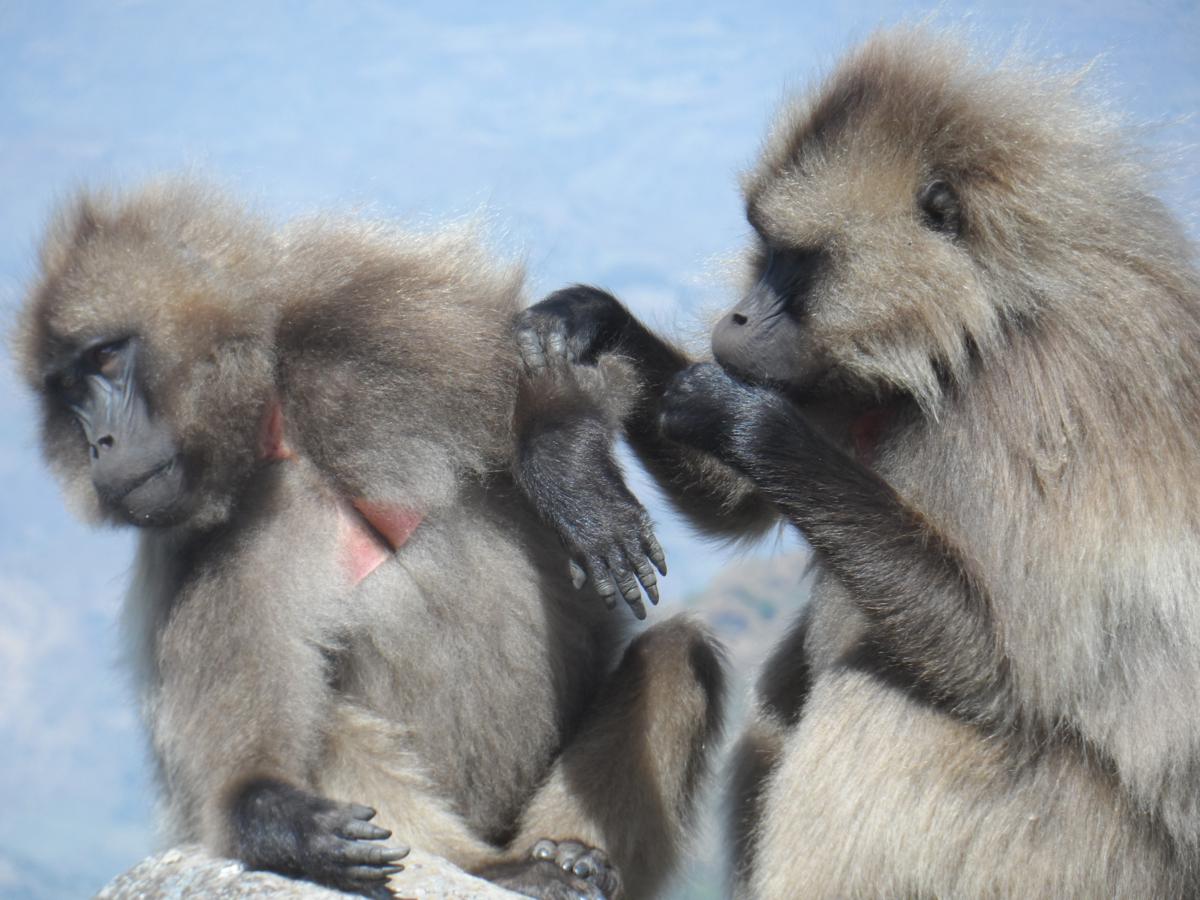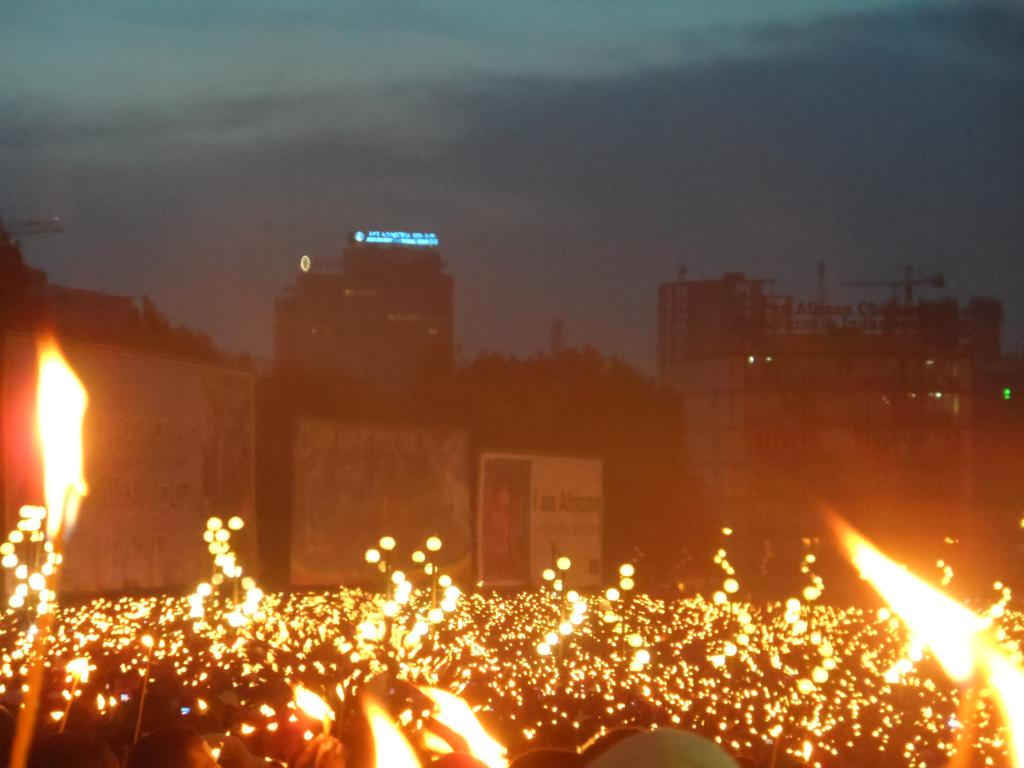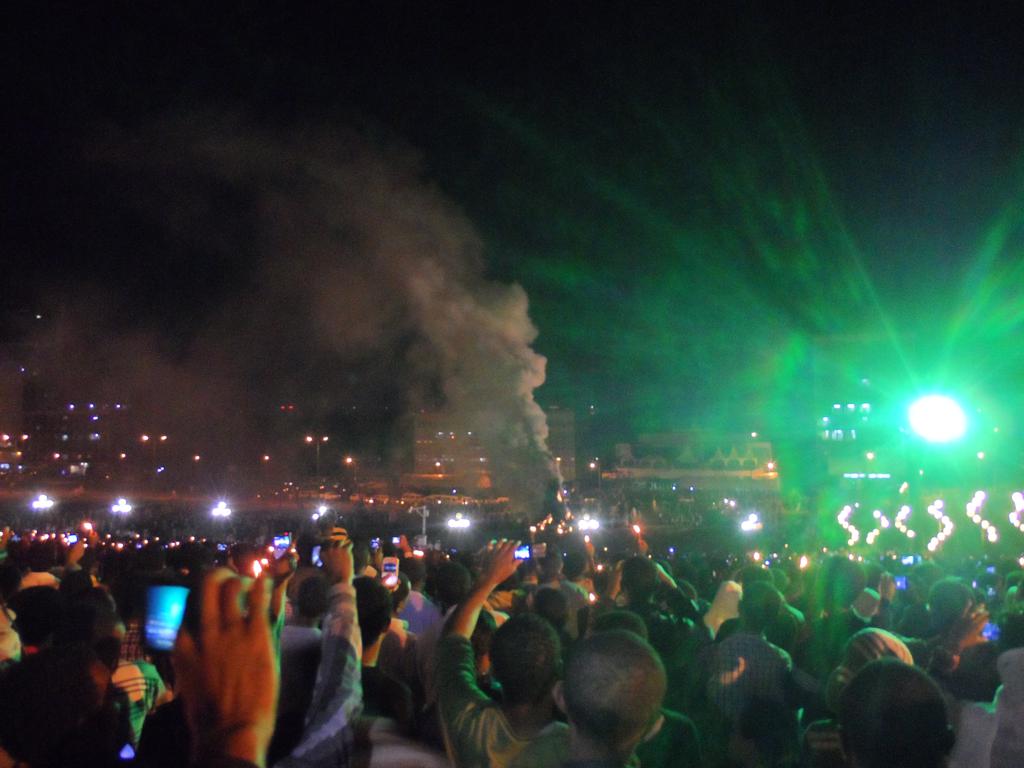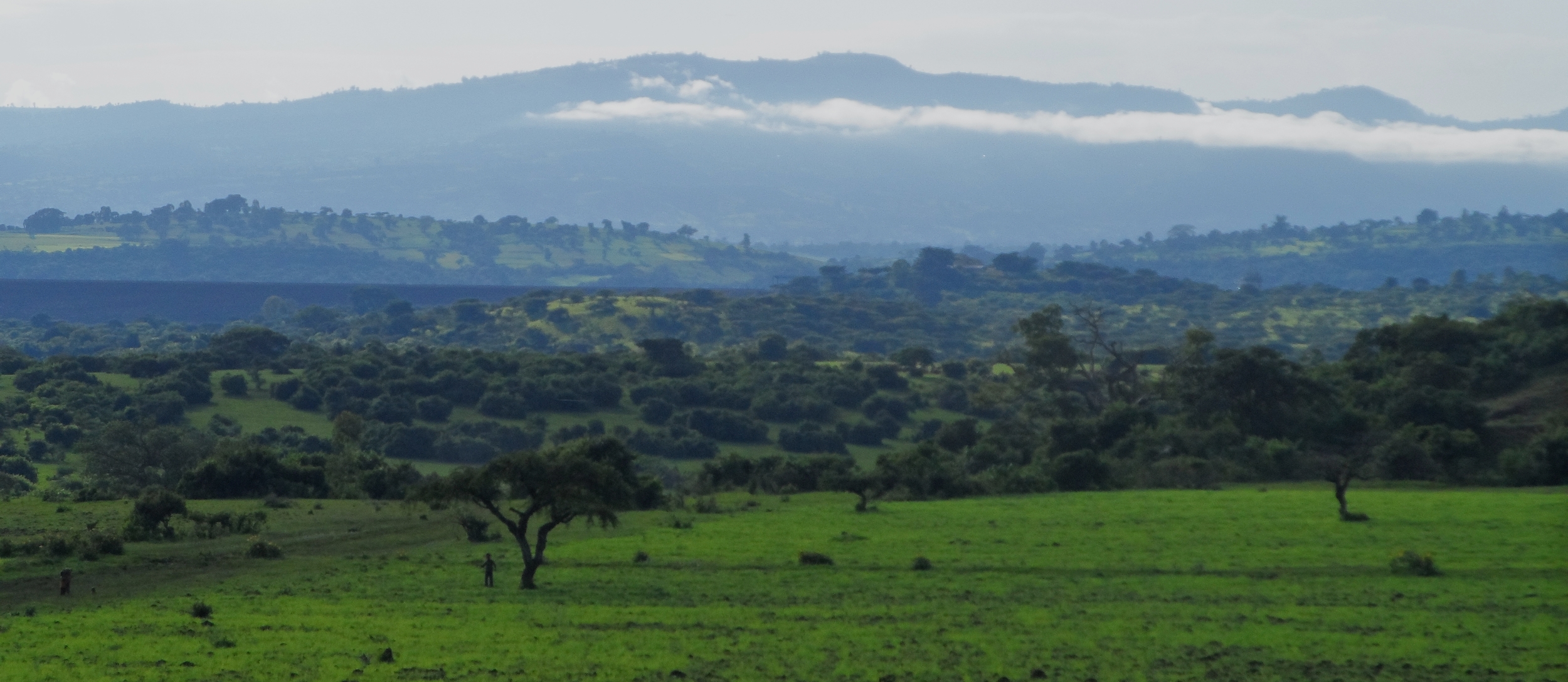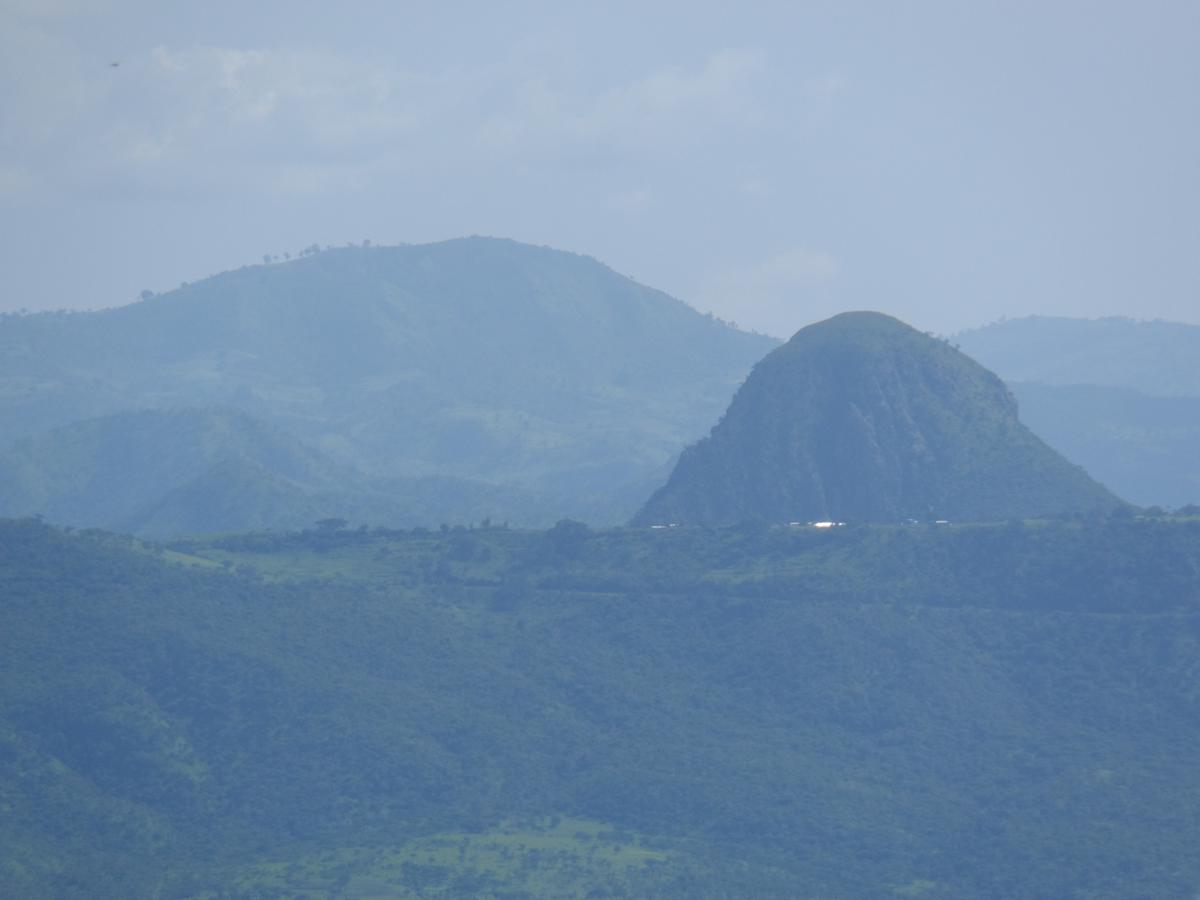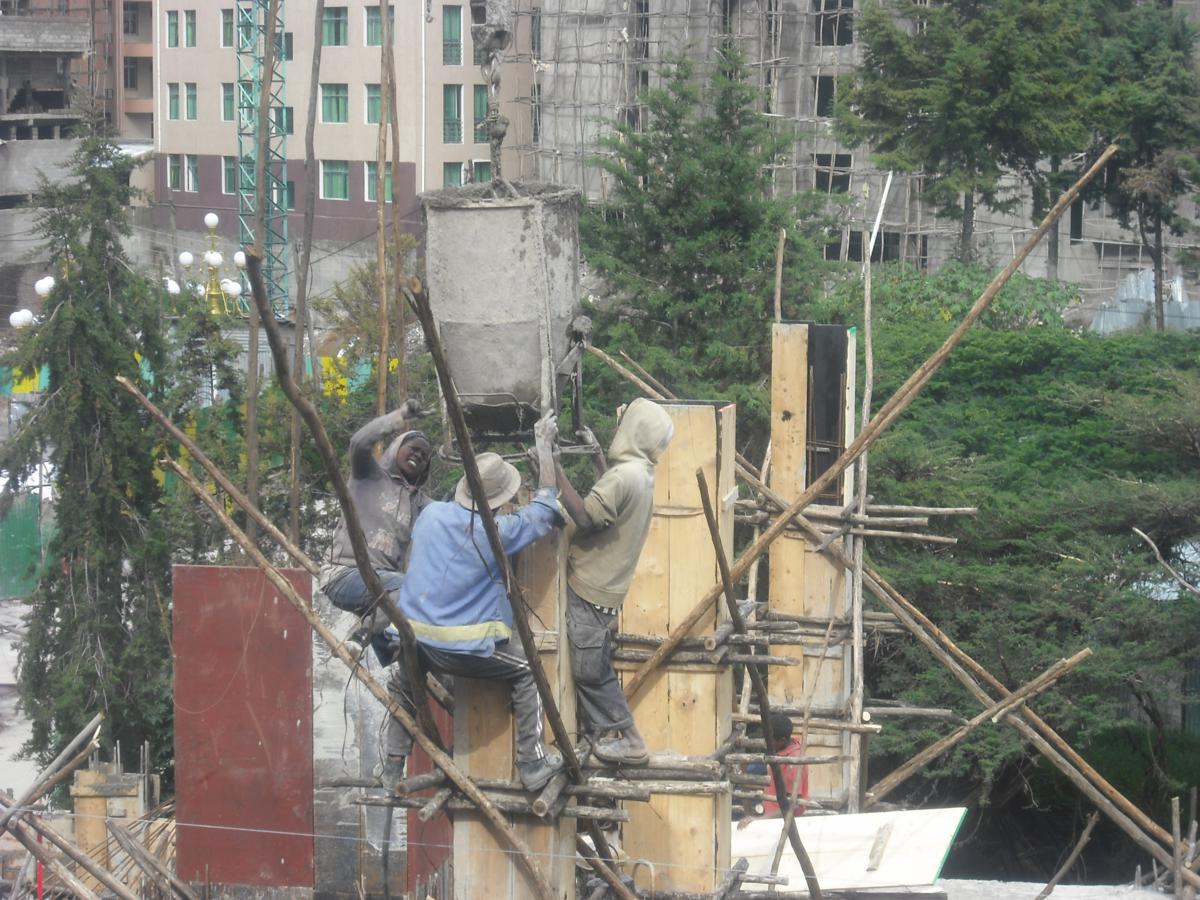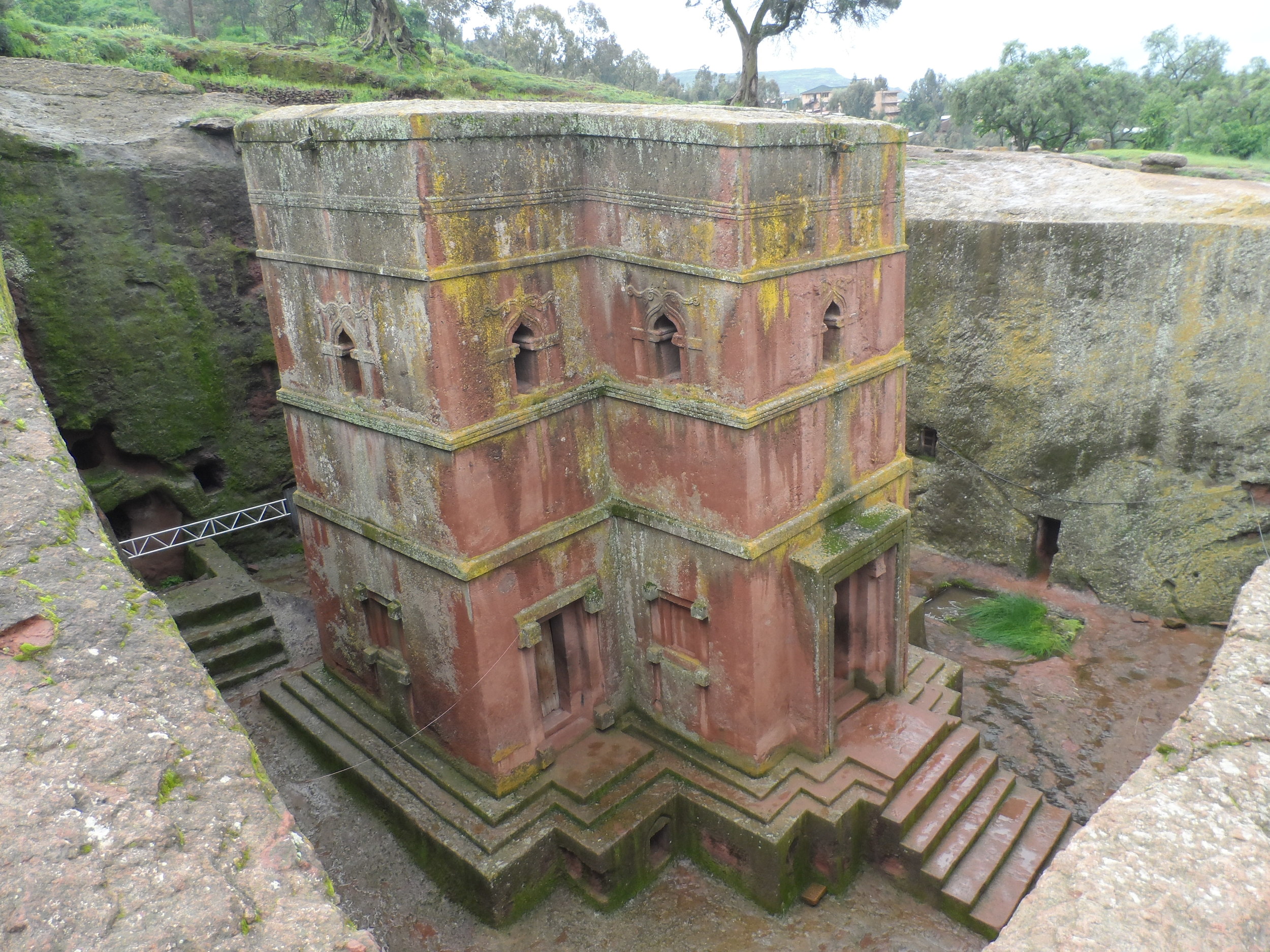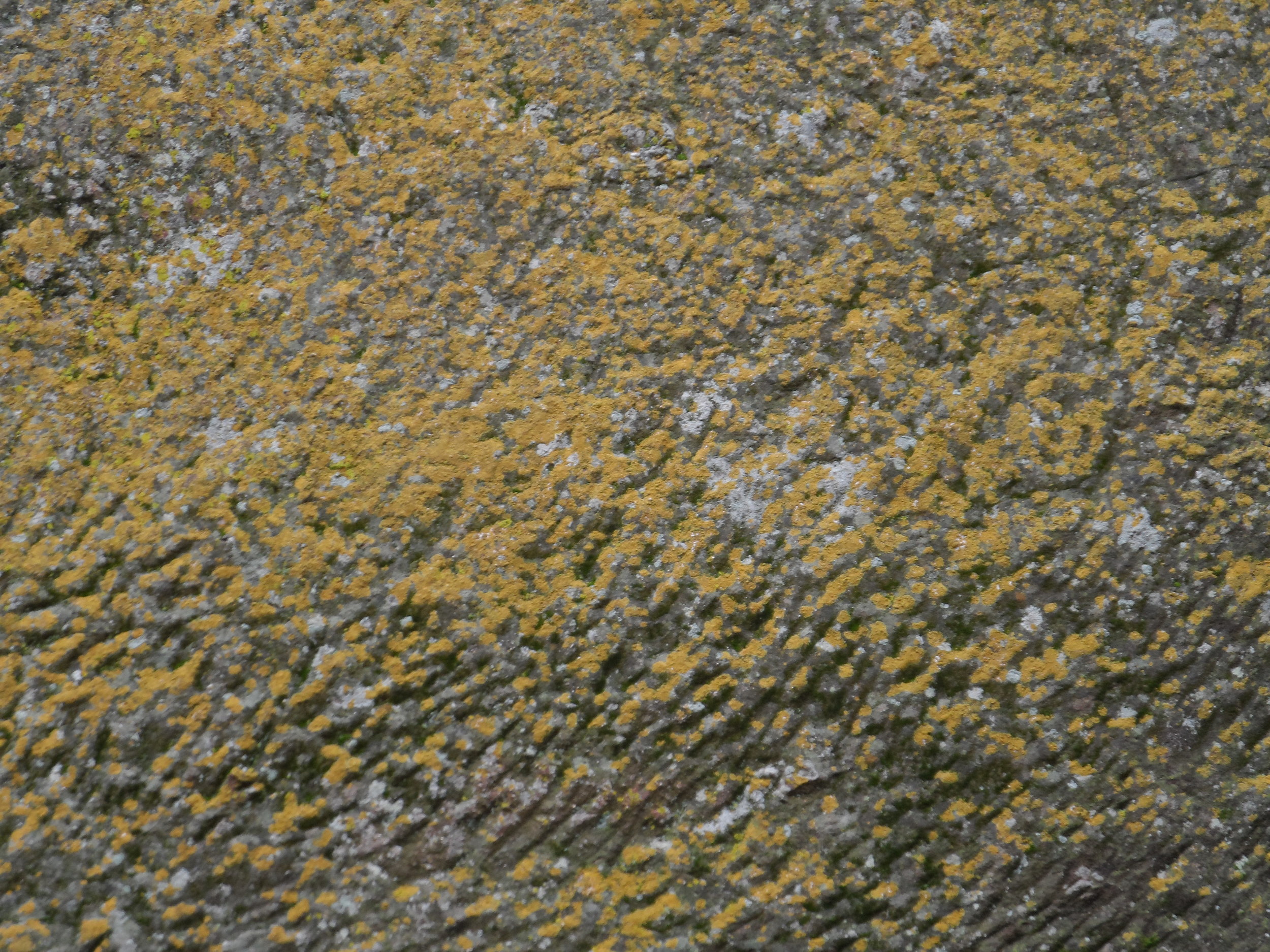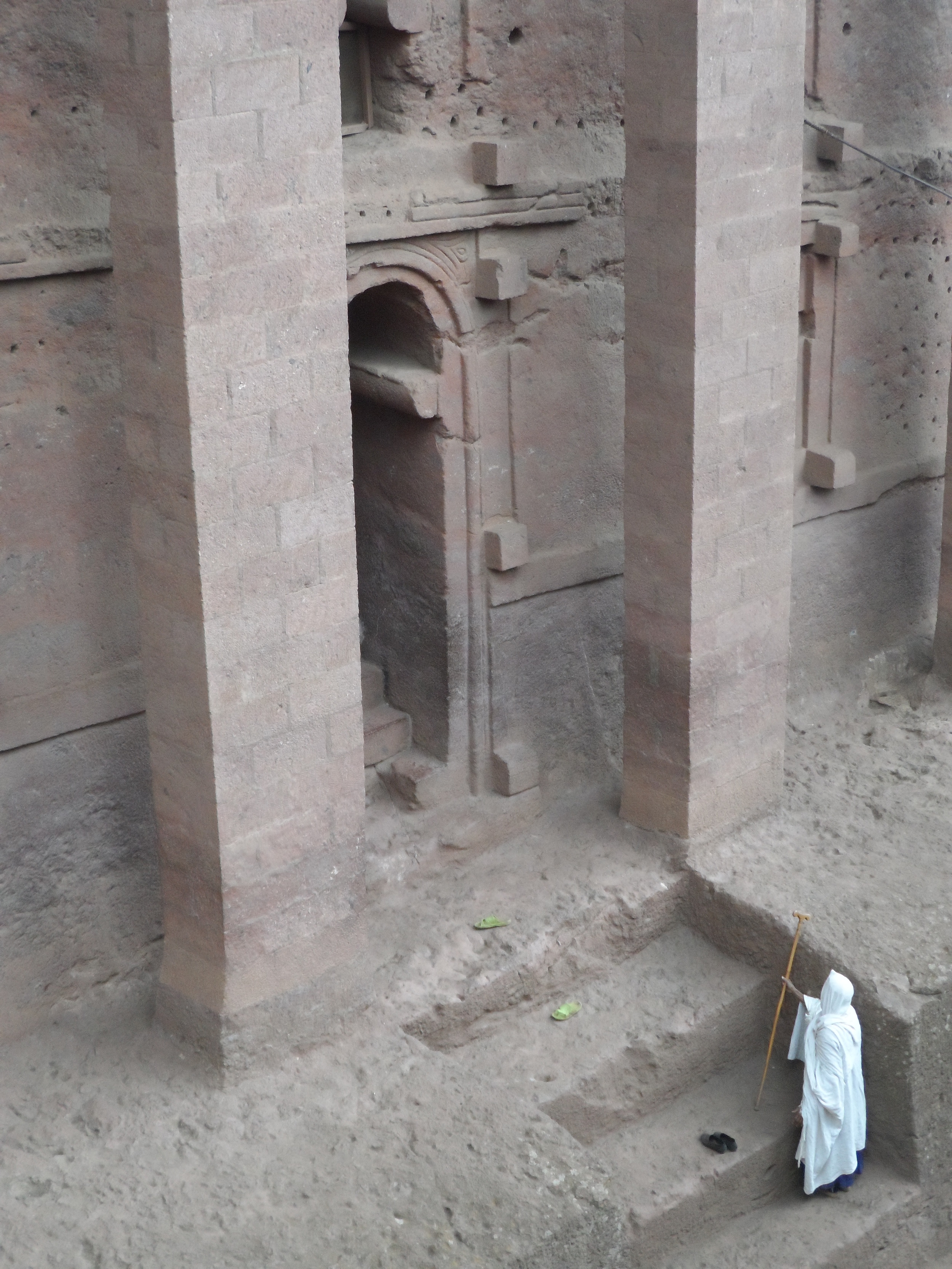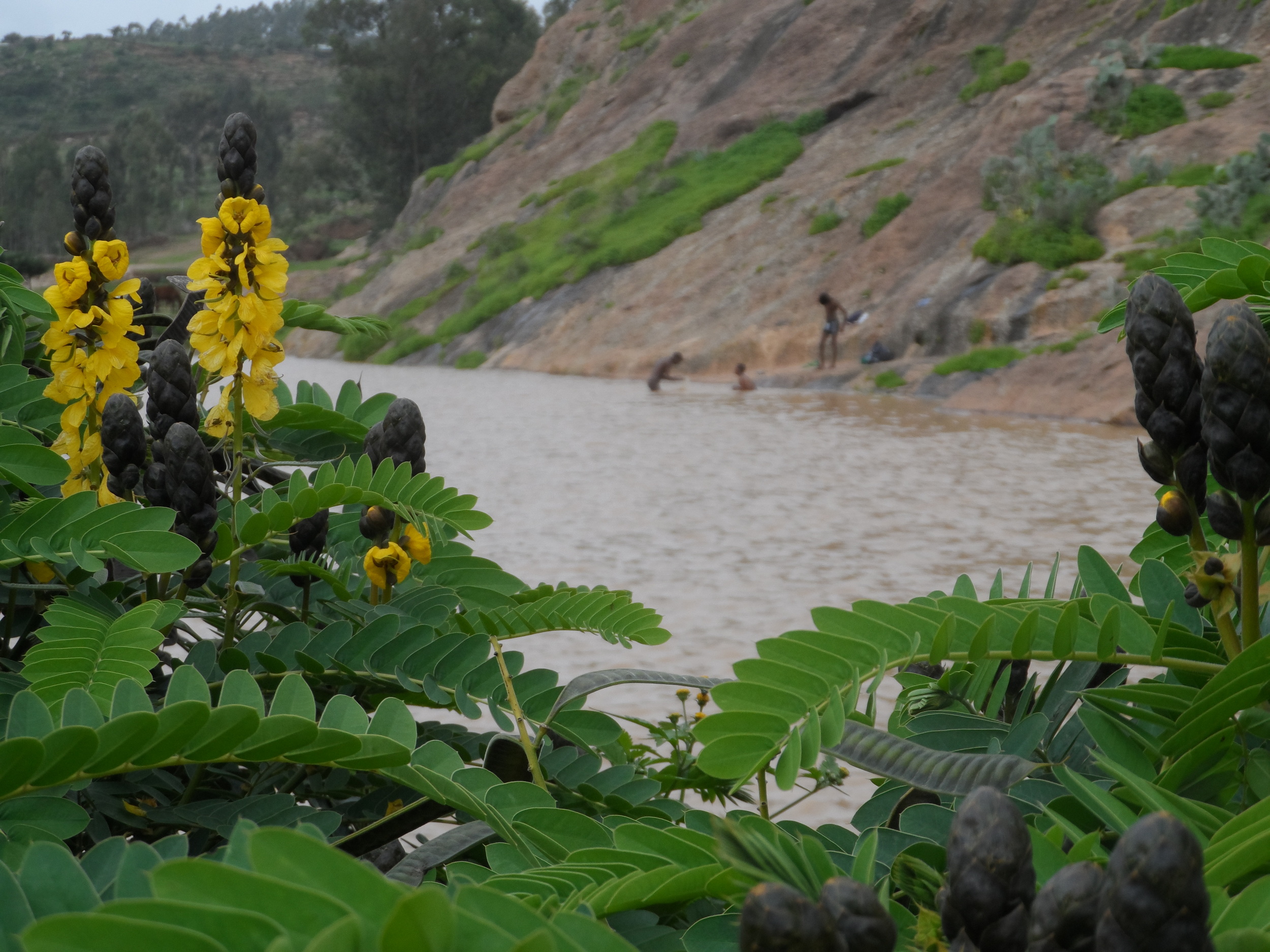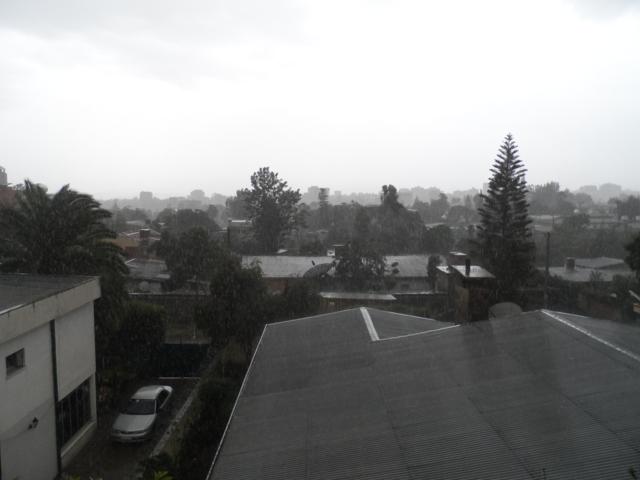It’s hard for me to experience Nigeria without comparing it – mentally, and probably too often, verbally, with Ethiopia. Or rather, comparing Abuja to Addis, since my experience in each country has been centered on the capital. A few thoughts with a broad brush stroke: compared to Addis, Abuja is hotter (lower altitude), the roads are much better (oil wealth? planned city?), the taxis and most cars are newer (less massive import taxes?), the driving is much more aggressive (cars that can actually go fast + fast roads), the upscale grocery stores have amazing selection (more Nigerian buying power?), and security and crime are much greater, ever-present concerns. The music is better (sorry, Teddy Afro) and the conversation louder. The international scene here is more British, more male, and – especially outside of Abuja – more ensconced in all-encompassing compounds called “life camps” run by big foreign oil and construction companies that, like NGOs, often have 3-letter acronym names that have long outlived their original meaning.
Do they know it's Christmas? No, because it isn't.
Remember "Do they know it's Christmas?" That's right, the 1984 hit song intended to raise money for famine victims in Ethiopia. If that's not ringing a bell (See what I did there?) then here's the video:
You probably didn't get very far, so here are some of the inane lyrics:
And there won't be snow in Africa this Christmas time The greatest gift they'll get this year is life Where nothing ever grows, no rain or rivers flow Do they know it's Christmas time at all?
In addition to reinforcing all sorts of stereotypes about Africa, this video gets one very important thing wrong: Do they know it's Christmas time? No, they don't, because Ethiopians are Orthodox Christians and don't celebrate Christmas until January 7th. So next time someone says they love this song, you now have an annoying know-it-all response to shut them down -- which you can consider your holiday gift from this blogger. Merry Christmas!
[On a more serious note, Ethiopia has made huge strides on food security since the fall of the Derg. If you want to read more on that, MoreAltitude (an aid blogger who recently relocated to Addis) has this take.]
Friday photos: Simien Mountains panoramas
Friday photos: Gelada baboons
The Simien Mountains in Ethiopia's north are swarming with Gelada baboons (which aren't actually baboons). Below are some photos I took of them over Thanksgiving break:
And an interesting fact about the mountains, from Wikipedia:
Although the word Semien means "north" in Amharic, according to Richard Pankhurst the ancestral form of the word actually meant "south" in Ge'ez, because the mountains lay to the south of Aksum, which was at the time the center of Ethiopian civilization. But as over the following centuries the center of Ethiopian civilization itself moved to the south, these mountains came to be thought of as lying to the north, and the meaning of the word likewise changed.
Someone should study this: Addis housing edition
Attention development economists and any other researchers who have an interest in urban or housing policy in low-income countries: My office in Addis has about 25 folks working in it, and we have a daily lunch pool where we pay in 400 birr a month (about 22 USD) to cover costs and all get to eat Ethiopian food for lunch every day. It's been a great way to get to know my coworkers -- my work is often more solitary: editing, writing, and analyzing data -- and an even better way to learn about a whole variety of issues in Ethiopia.
The conversation is typically in Amharic and mine is quite limited, so I'm lucky if I can figure out the topic being discussed. [I usually know if they're talking about work because so many NGO-speak words aren't translated, for example: "amharic amharic amharic Health Systems Strengthening amharic amharic..."] But folks will of course translate things as needed. One observation is that certain topics affect their daily lives a lot, and thus come up over and over again at lunch.
One subject that has come up repeatedly is housing. Middle class folks in Addis Ababa feel the housing shortage very acutely. Based on our conversations it seems the major limitation is in getting credit to buy or build a house.
The biggest source of good housing so far has been government-constructed condominiums, for which you pay a certain (I'm not sure how much) percentage down and then make payments over the years. (The government will soon launch a new "40/60 scheme" to which many folks are looking forward, in which anyone who can make a 40% down payment on a house will get a government mortgage for the remaining 60%.)
When my coworkers first mentioned that the government will offer the next round of condominiums by a public lottery, my thought was "that will solve someone's identification problem!" A large number of people -- many thousands -- have registered for the government lottery. I believe you have to meet a certain wealth or income threshold (i.e., be able to make the down payment), but after that condo eligibility will be determined randomly. I think that -- especially if someone organizes the study prior to the lottery -- this could yield very useful results on the impact of urban housing policy.
How (and how much) do individuals and families benefit from access to better housing? Are there changes in earnings, savings, investments? Health outcomes? Children's health and educational outcomes? How does it affect political attitudes or other life choices? It could also be an opportunity to study migration between different neighborhoods, amongst many other things.
A Google Scholar search for Ethiopia housing lottery turns up several mentions, but (in my very quick read) no evaluations taking advantage of the randomization. (I can't access this recent article in an engineering journal, but from the abstract assume that it's talking about a different kind of evaluation.) So, someone have at it? It's just not that often that large public policy schemes are randomized.
Friday photo: Wenchi Crater Lake
Wenchi Crater Lake is a long-ish day trip from Addis Ababa. The former volcanic cone is filled with a lake and hiking trails, and there's even a monastery on an island in the middle of the lake. Here's a panorama shot from near the top of the trail, made from five photos stitched together (click for higher resolution):
Friday photos: Meskel
Last week Ethiopia celebrated Meskel, a major holiday that commemorates the discovery of the "one true cross" on which Jesus was crucified. Meskel Square in Addis is the place to be -- "meskel" means cross in Amharic. Orthodox priests and actors surround the cross (yes, the thing that looks like a Christmas tree to American eyes):
Everyone brings candles, and at dusk they're lit in a slow wave moving across the square:
The roar of the crowd grows until the cross is lit:
Documentation:
As the fire dies down the crowd scattered -- but this drumming and singing circle stuck around for quite a while:
Best billboard ever?
Friday photos
Friday photos
These photos are of the construction site next to my office in Addis -- the quality isn't that great, but I still think they're interesting. Some observations on this site:
- progress is slow
- manual labor is substituted for capital-intensive technology wherever possible
- the scaffolding is made by hand on site
- there's absolutely no protective gear (no hard hats, no harnesses while hanging off the flimsy handmade scaffolding), and
- women are surprisingly well-represented (at least at this site).
Friday photos
Friday photos
Friday photos
Friday photos
Friday photos may be a new recurring feature on this blog -- while I won't post reviews of every place I go on weekends (or during the week for work), it's hard to resist sharing some highlights of Ethiopia. A beautiful and fascinating country: Medhane Alem, the largest monolithic church in the world, is just one of a dozen churches at Lalibela carved from solid rock in the 14th century AD:
Swimming at the "Queen of Sheba's Bath", in Aksum, northern Ethiopia:
More photos of travel around Ethiopia can be found here.
Busy
In lieu of observations about Ethiopia, notes from my work here, or discussion of recent news/articles/links, here's a picture of the books currently occupying my time at work (fascinating, I know):
Tomorrow I'm off to Mek'ele, the capital of Tigray region in northern Ethiopia, for work for about a week. If you have blog withdrawal in the meantime, I share links to maybe 5-10 articles or blog posts each day on Twitter.
Marabou stork
Marabou stork are some of the largest landbirds out there. Some of the ones I saw around Lake Hawasa stood as high as my chest. And unlike the storks of popular culture, these ones have been known to eat children.
Beautiful, aren't they?...
Addis taxi economics
A is in his early 20s, and he's my go-to taxi driver. He speaks good conversational English, which he picked up in part through being befriended by a Canadian couple who lived in Ethiopia for a while. Addis traffic is crazy but a bit more forgiving than some cities I've seen -- there don't seem to be many real traffic rules, but there's more deference to other drivers. "A, you drive like a pro," my friend says. "How long have you been driving?" "Oh, just six months!" (We gulp.) In Addis "taxi" is used to refer to both ancient minibuses that drive set routes throughout the city and to traditional blue-and-white cars -- often ancient-er -- that will take you wherever you want to go. (Google Images of Addis taxis here.) A's car is the latter type, an old model that breaks down often and has one window handle you have to pass around to roll down each window.
Minibuses charge a flat rate on pre-specified routes, usually just a few Birr (ie, less than $0.20 US), but the personal taxis can charge much more. So having a few reliable drivers' cell numbers is helpful because the prospect of your continued business helps ensure that you'll get a better price for each ride.
Regarding taxis more generally: always negotiate a fare before you get in. Depending on the mood of the driver, current traffic and road construction, and the evident wealth, race, or nationality of the prospective passenger, the prices quoted will vary widely. I was once quoted 60 Birr and 150 Birr as starting prices ($3.50 and $8.80 US) by two drivers standing right next to each other!
Almost all of the taxi business seems to come from internationals and upper-class Ethiopians. Thus, taxis often congregate around the neighborhoods, hotels, and restaurants frequented by these groups. You'll also get quoted a higher starting price if you're seen coming out of a nice hotel than if you pick a cab just around the corner.
Starting prices definitely differ by race as well. (Here I cite conversations with Chinese-American and Bengali-American friends living in Addis.) Drivers will generally assume you're from America (if you're Caucasian), China (if you're East Asian), and India (if you're South Asian) and charge accordingly. White people get the highest starting prices, whereas if they assume you're Chinese or Indian the starting price will be about 70% of the white price. This is, of course, entirely anecdotal, so econ PhD students take note: there's some fascinating research to be done on differential pricing of initial and final fares for internationals living in Addis. In economics this differential pricing is called price discrimination (which can actually be good for consumers as it allows producers to provide services to a broader range of people, who often have different preferences and ability to pay).
A doesn't own his taxi, and says that most drivers don't either. Instead, he rents/leases his from a man who owns many taxis. That guy made enough money ("he is rich now!") that he now goes to Dubai to buy other cars to import into Ethiopia. (Dubai is the go-to place for importing many things here.) A pays the owner a flat rate to have the taxi for a 10-day period, with more or less automatic renewals as long as he's doing well enough to keep paying the fee. If he gets sick or wants to take a day off he has to pay that day's rental fee out of earnings from another day, so A gets up at 6 am and drives until after midnight. Seven days a week.
A is only six months into the job, but he's already looking for the next gig. He aspires to work as a tour guide -- better pay and better hours, he says. And, I think, less risk of injury: almost all the taxis in Addis are from an era before airbags and seatbelts became commonplace. I think A would be a great tour guide -- I hope it works out.
Sweet tooth
Rainy season is here
Ethiopia bleg
Bleg: n. An entry in a blog requesting information or contributions. (via Wiktionary)
Finals are over, and I just have a few things to finish up before moving to Addis Ababa, Ethiopia on June 1. I'll be there for almost eight months, working as a monitoring and evaluation intern on a large health project; this work will fulfill internship requirements for my MPA and MSPH degrees, and then I'll have just one semester left at Princeton before graduating. After two years of "book-learning" I'm quite excited to apply what I've been learning a bit.
One thing I learned from doing (too many?) short stints abroad is that it's easy to show up with good intentions and get in the way; I'm hopeful that eight months is long enough that I can be a net benefit to the team I'll be working with, rather than a drain as I get up to speed. I plan to get an Amharic tutor after I arrive -- unfortunately I figured out my internship recently enough that I wasn't able to plan ahead and study the language before going.
I'm especially excited to live in Ethiopia. I have not been before -- this will be my first visit to East Africa / the Horn of Africa at all. I'll mostly be in Addis, but should also spend some time in rural areas where the project is being implemented. I've already talked with several friends who briefly lived in Addis to get tips on what to read, what to do, who to meet, and what to pack. That said I'm always open for more suggestions.
So, I'll share what I've already, or definitely plan to read, and let you help fill in the gaps. Do you have book recommendations? Web or blog links? RSS suggestions? What-to-eat (or not eat) tips? Here's what I've dug up so far:
- Owen Barder has several informative pages on living and working in Ethiopia here.
- Chris Blattman's post on What to Read About Ethiopia has lots of tips, some of which I draw on below. His advice for working in a developing country is also helpful, along with lists of what to pack (parts one and two), though they're obviously not tailored to life in Addis. Blattman also links to Stefan Dercon's page with extensive readings on Ethiopian agriculture, and helpfully organizes relevant posts under tags, including posts tagged Ethiopia.
- As for a general history, I've started Harold Marcus' academic History of Ethiopia, and it's good so far.
- Books that have gotten multiple recommendations from friends -- and thus got bumped to the top of my list -- include The Emperor, Cutting for Stone, Chains of Heaven, and The Sign and the Seal. Other books I've seen mentioned here and there include Sweetness in the Belly, Waugh in Abyssinia, Notes from the Hyena's Belly, Scoop, and A Year in the Death of Africa. If you rave about one of these enough it might move higher up the priority list. But I'm sure there are others worth reading too.
- For regular information flow I have a Google Alert for Ethiopia, the RSS feed for AllAfrica.com's Ethiopia page, and two blogs found so far: Addis Journal and Expat in Addis. (Blog recommendations welcome, especially more by Ethiopians.) There's also a Google group called Addis Diplo List.
- One of my favorite novels is The Beautiful Things That Heaven Bears -- the story of an Ethiopian immigrant in Washington, DC's Logan Circle neighborhood in the 1980s. It's as much about gentrification as it is about the immigrant experience, and I first read it as a new arrival in DC's Petworth neighborhood -- which is in some ways at a similar 'stage' of gentrification to Logan Circle in the 80s.
- I've started How to Work in Someone Else's Country, which is aimed more at short-term consultants but has been helpful so far.
- Also not specific to Ethiopia, but I'm finally getting around to reading the much-recommended Anti-Politics Machine, on the development industry in Lesotho, and it seems relevant.
Let me know what I've missed in the comments. And happy 200th blog post to me.
(Note: links to books are Amazon Affiliates links, which means I get a tiny cut of the sales value if you buy something after clicking a link.)



